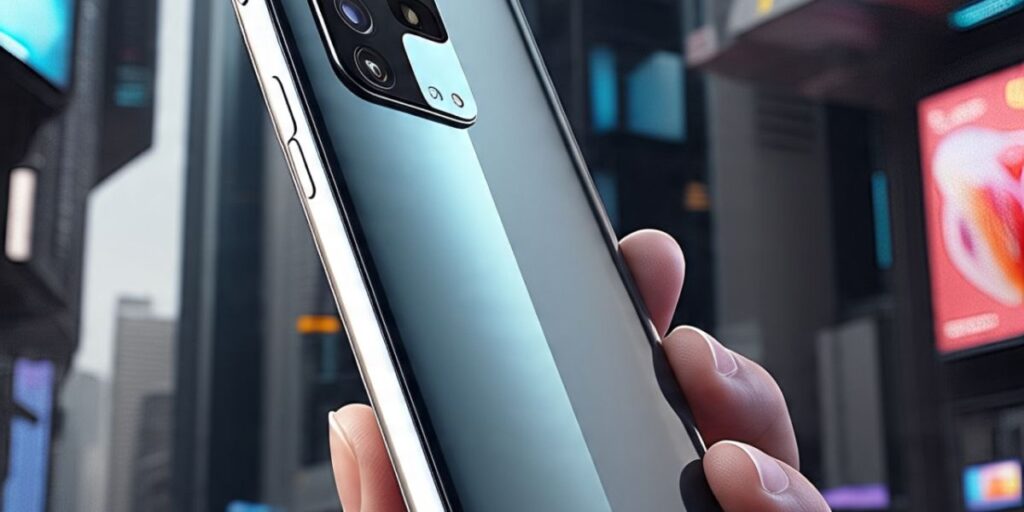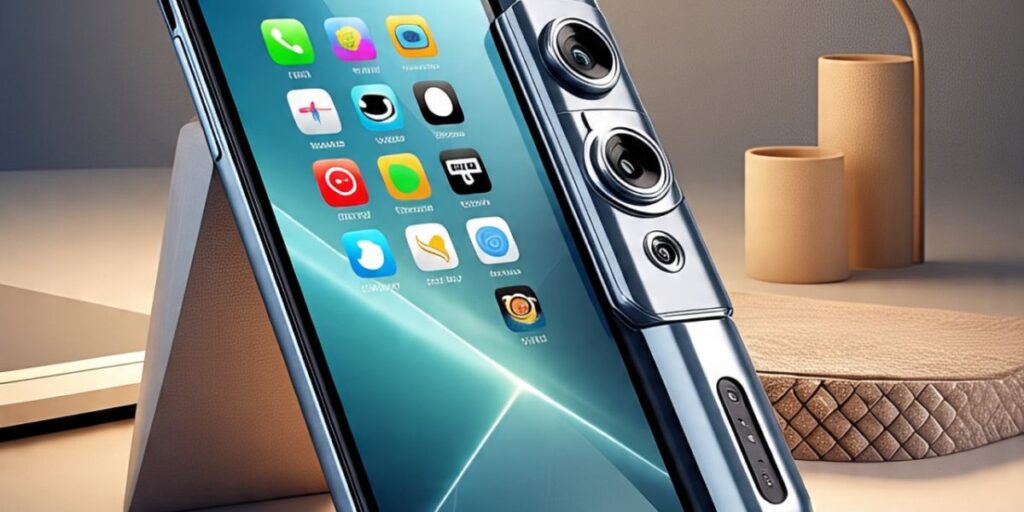📆 From 2015 to 2025: The Rise of Affordable Flagship Killers
Remember when budget phones meant laggy screens, plastic shells, and “just enough” specs to get you through WhatsApp and maybe a photo or two—if you didn’t zoom in?
Yeah, those days feel ancient.
Back in 2015, a decent phone under $300 was a rare gem. Most were sluggish, skinned with bloated UI, and, honestly, kinda embarrassing to pull out in public. Fast forward to 2025, and budget smartphones are flexing features that flagship models used to brag about—like 120Hz AMOLEDs, Sony sensors, and even AI-boosted processors.
So, how did we get here?
It wasn’t magic. It was a slow burn. Brands like Xiaomi, Realme, Motorola, and even Samsung started betting big on this segment, realizing that not everyone wanted to drop a grand on a phone. Over time, “budget” stopped meaning “basic.”
Let’s rewind and track the turning points.
🔧 Key Milestones in Budget Phone Innovation (2018–2023)

Okay, here’s where things started to snowball.
- 2018: Xiaomi dropped the Poco F1. A Snapdragon 845 at around $300? That shook the game. Suddenly, the term “flagship killer” wasn’t just marketing fluff—it was real.
- 2019–2020: Realme and Redmi started pushing boundaries. Phones like the Realme X2 Pro and Redmi Note 8 Pro offered AMOLED displays and fast charging—stuff that mid-range phones didn’t even dream of a few years prior.
- 2021–2022: The 5G wave started rippling through. Dimensity and Snapdragon 700-series chips brought 5G support to phones well under $400. Everyone wanted in, and suddenly, “cheap 5G” wasn’t a meme.
- 2023: OLED displays, 108MP sensors, and fast-refresh screens became almost standard below $300. It was wild. Even Motorola made a comeback with its G-series, punching above its weight.
You could now grab a budget phone and still game on it, shoot decent pics, and not feel like you were compromising. But it didn’t stop there.
📶 2024 Recap: 5G Enters the Budget Game
Let’s be real—5G in 2020 was mostly hype. But by 2024? Even your grandma’s $200 phone could stream Reels at blazing speeds (not that she should).
The Dimensity 6100+ and Snapdragon 4 Gen 2 chips brought 5G to the lowest end of the market. But more importantly, they didn’t just slap on 5G and call it a day. These chips were surprisingly snappy, handled day-to-day tasks smoothly, and kept battery drain in check.
Oh, and let’s not forget the push for cleaner software. Brands started moving away from bloatware and heavy skins—think Motorola’s near-stock Android or Xiaomi’s HyperOS rework.
By 2024, the narrative had shifted. Budget phones weren’t “cheap phones.” They were “smart choices.”
📊 2025’s Turning Point: High-End Features Meet Entry-Level Prices
Now here’s where things get spicy.
2025 wasn’t just another incremental upgrade year—it was a reset button. A lot of it had to do with component maturity. Once-exotic features finally became affordable to mass-produce. But the real magic? Manufacturers finally figured out how to balance cost and experience.
Let’s look at what’s now expected in a sub-$300 phone in 2025:
- 120Hz AMOLED with FHD+: No more LCDs with ghosting nightmares.
- Snapdragon 7s Gen 2 or Dimensity 7200: Capable of gaming, editing, and AI image tweaks.
- Glass sandwich design: Yep, budget phones finally stopped feeling like toys.
- 50MP or 64MP OIS cameras: Surprisingly good low-light and stabilized video.
- 33W–67W fast charging: Charging a phone during breakfast? Done.
It’s kind of absurd when you think about it. Ten years ago, you’d expect this from a $900 flagship. Now, it’s in the hands of college students, food delivery riders, and creators just starting.
🧪 Behind the Tech: What Changed in SoCs, Cameras & Screens?

Here’s the thing—tech doesn’t stand still. But in the last few years, it’s evolved sideways too, not just upward.
- SoCs (System on Chips): Mid-range chips like Snapdragon 6 Gen 1 or MediaTek Dimensity 8300 don’t just offer speed. They bring AI features, better ISPs (Image Signal Processors), and support for high-refresh displays. AI in budget phones? Yeah, it’s not just buzz—it’s real-time background blur, scene recognition, and noise reduction in photos.
- Camera Tech: Thanks to better sensors from Sony and Samsung, even entry-level phones now pull off sharp, balanced images. Add in computational photography—basically, the phone’s brain adjusting your shot behind the scenes—and boom, Instagram-worthy snaps on a budget.
- Displays: AMOLED used to be a premium perk. Now? It’s in phones at half the price of a Galaxy S-series. Add in higher refresh rates and even HDR support, and suddenly Netflix on a $200 phone doesn’t feel like punishment.
So yeah, the under-the-hood stuff matters more than ever—and it’s what made the budget segment explode in 2025.
🧠 Consumer Expectations in 2025: More Than Just “Cheap Phones”
Let’s talk mindset.
It’s not just about affordability anymore. People—especially younger buyers—want value without feeling shortchanged. They want performance, but also vibes. A phone that looks cool, feels premium, and runs smoothly even after a year of abuse.
And brands? They’ve caught on.
They’re giving us better software update cycles. More polished UI. Less bloat. Phones that don’t just last but evolve. Think about it: if you’re spending $250, you want that thing to feel like it costs twice that. And now, it does.
Plus, let’s be honest, the smartphone isn’t just a gadget anymore. It’s a social tool, a creative platform, and for many, a money-making device. Whether you’re flipping sneakers on Instagram or editing videos for Reels, the demand isn’t just performance—it’s versatility.
🔮 What’s Next for Budget Smartphones in 2026?
Alright, future talk. What’s cooking?
We’re hearing whispers about:
- Satellite connectivity in mid-range devices
- Foldable-lite phones—okay, maybe not glass folding in this price range, but more durable and flexible form factors
- More AI-based UIs—personalized everything, from keyboard layout to camera modes
- Wireless charging is finally trickling down (about time, honestly)
And here’s a hot take: The gap between budget and flagship will get smaller, not because flagships will get worse, but because budget phones will keep punching up.
The next big battle? Software experience. AI and customization will be where brands try to differentiate. And trust me, consumers will notice.
Final Thoughts: Budget Ain’t Basic Anymore

You know what? It’s kind of poetic.
The underdog segment, once dismissed as “for people who can’t afford real phones,” has now become the most exciting, most competitive space in mobile tech. It’s where innovation is lean, fast, and customer-focused.
In 2025, buying a budget phone isn’t about settling—it’s about outsmarting the system. It’s picking a device that gives you what matters and skips the fluff.



